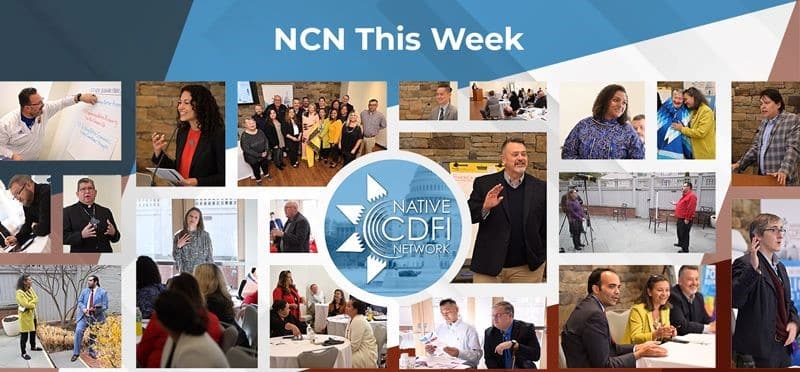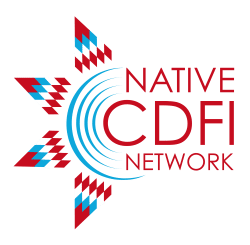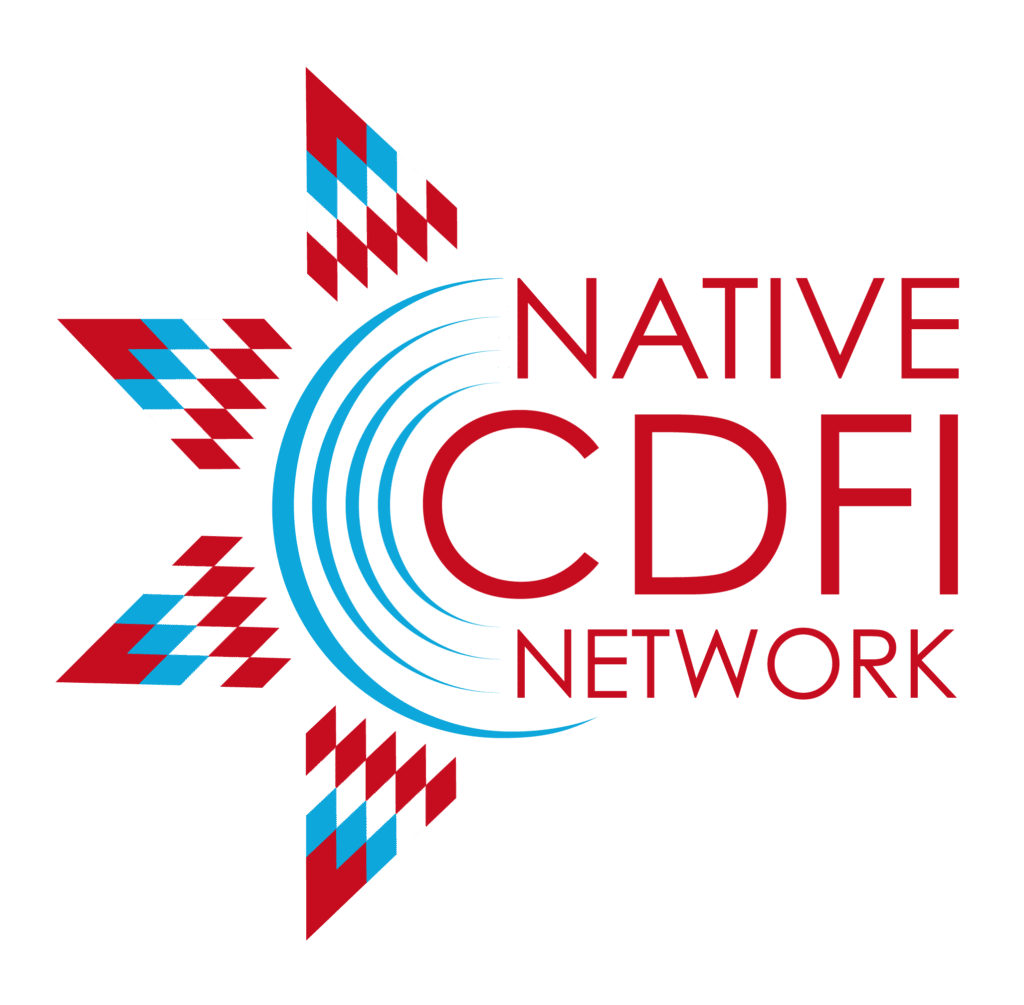
NCN WEBINAR with Federal Agencies This Thursday, June 16:
“Modernizing the Community Reinvestment Act: The NPR’s Implications for Indian Country and Native CDFIs”
This Thursday, June 16 at 2:00 p.m. EDT, NCN will host a special two-hour webinar featuring representatives from the federal agencies tasked with regulating lending institutions’ compliance with the Community Reinvestment Act (CRA). They will be on hand to provide an overview of the new Interagency CRA Notice of Proposed Rulemaking (NPR). They also will detail the section focused on Indian Country titled “Activities in Native Land Areas” (see pages 96-103) and the sections focused on Treasury Department-certified CDFIs, including Native CDFIs (see pages 88-93 and 112-119).
SESSION AGENDA:
2:00 to 3:00 p.m. EDT – Comprehensive overview of the NPR (webinar participants are strongly encouraged to watch/listen to the CRA NPR explanatory video in advance of the webinar here – you must sign in to access).
3:00 to 3:15 p.m. EDT – Focused presentation on “Activities in Native Land Areas” section
3:15 to 3:30 p.m. EDT – Q&A with federal officials on “Native Land Areas” and CDFI sections as well as other parts of the NPR
3:30 to 4:00 p.m. EDT – Debrief among attendees; discussion of issues to raise and questions to pose in NCN’s formal comments on the CRA NPR
Native CDFIs, tribal governments, and other interested stakeholders have until August 5, 2022 to submit formal comments on the NPR. To review the NPR, the interagency press release, the NPR Fact Sheet, and related materials, please click here.
June 23 NCN WEBINAR:
The Native American Rural Homeownership Improvement Act (S. 2092): Enhancing the USDA Section 502 Home Loan Program
Native CDFI leaders, staff, and key stakeholders are invited to participate in this important webinar to learn more about the Native American Rural Homeownership Improvement Act of 2021 (S. 2092) and how it will strengthen the USDA Section 502 Home Loan Program, which is an important tool available to Native CDFIs in cultivating homeownership across Indian Country. Congressional staff representing bill co-sponsor U.S. Senator Mike Rounds (SD) will present an overview of the bill and engage in a dialogue with attendees about how to get the legislation across the finish line.
NCN “Difference Makers” Interview Series:
Sara Barbour and Skya Ducheneaux
Last week, the Native CDFI Network released its latest edition of “Native CDFIs: Difference Makers for Indian Country,” an interview with Acting Executive Director Sara Barbour of the Yurok Tribe’s The Alliance CDFI, a federally certified Native CDFI located in northern California whose mission is to “promote economic and financial assistance, small business development, and build assets within the Tribe’s jurisdiction among tribal members, improving the quality of life for its peoples and communities.” To read the interview, please click here.
Coming this Thursday: “Difference Makers” sits down with Skya Ducheneaux, Executive Director of Akiptan, Inc. A federally certified Native CDFI based in Eagle Butte, South Dakota on the Cheyenne River Sioux Reservation, Akiptan serves and supports Native agricultural producers nationwide.
To read the other interviews in NCN’s “Difference Makers” series, please click here.
Important Update on State Small Business Credit Initiative (SSBCI) Program
The Native CDFI Network would like to provide you with a brief update and status report on the State Small Business Credit Initiative (SSBCI) program.
Upcoming events and deadlines:
- Treasury will be conducting weekly webinars this month, scheduled for every Thursday at 4:00 p.m. EDT.
- Treasury will also conduct a webinar on tribal government joint applications, scheduled for today, June 13, 2022 at 4:00 p.m. EDT.
- Program applications are due September 1, 2022.
- Technical assistance grant applications are due September 1, 2022. The technical assistance grant application guidance can be found here.
Program Updates:
On May 9, the U.S. Treasury issued its Capital Program Reporting Guidance, which can be found here. This guidance was recently updated on May 25. Treasury also published a sample demographic reporting form, based on the interim rule (discussed below).
In short, Treasury will require quarterly program reporting (such as total funds used and reused, program income and administrative costs) and annual transactional reporting (at the borrower or investee level).
Examples of annual transactional information required include:
- Provider (i.e., lenders, investors) information
- Source of private investment for loan or investment
- Loan or investment performance
- Borrower or investee business specific information (name, NAICS code, revenue, employees, purpose of loan, size of loan)
- Tribal government program information (type of transaction and location of business)
- Treasury has also published a draft Allocation Agreement, which every tribe must sign as a condition to receiving its SSBCI allocation.
Treasury’s updated the SSBCI FAQs can be found here.
In March, Treasury published an interim final rule on annual demographic reporting requirements for the SSBCI program. As stated in the rule, jurisdictions, including Tribal governments, must collect certain demographic information and report annually to Treasury. The primary purposes include: to measure compliance with the SEDI goals, to provide exceptions to certain federal laws the prohibit collecting certain demographic information, and to measure the overall impacts of the SSBCI program on certain minority, underserved, and marginalized groups.
In short, lenders and investment managers will have to collect and report to Tribes the following information for each small business that receive loans, investments, or other loan or equity support programs:
- Self-certified SEDI-demographics-related business
- Minority-owned or controlled business
- Woman-owned or controlled business
- Veteran-owned or controlled business
- For all principal owners (defined as 25% + ownership) of a small business
- Race
- Ethnicity
- Middle Eastern or North African ancestry
- Gender
- Sexual orientation
- Veteran status
While Treasury is requiring this information be collected for each loan, investment or other loan or equity support made to a small business, the small business does not have to provide the information requested.
CDFI Fund Seeking Application Reviewers for CDFI and NACA Programs
The Community Development Financial Institutions (CDFI) Fund is issuing a call for highly-qualified personnel to serve as application Reviewers for the FY 2022 application round of the CDFI Program and Native American CDFI Assistance (NACA) Program.
The CDFI Fund has contracted with Areeva/F2 Solutions (Areeva/F2) to recruit Reviewers. Recruitment will be conducted by Areeva/F2 until TODAY, June 13, 2022.
General Candidate Qualifications: The CDFI Fund and Areeva/F2 require Reviewers to have considerable expertise in the community and economic development finance sectors. Areas of expertise include:
- Affordable housing
- Small business
- Microfinance
- Commercial real estate financing
- Financing of community-based organizations
- Familiarity of depository institutions such as credit unions and banks
- Pooling of community development loans for sale in secondary markets
- Development service activities
In addition, qualitative skills are required, such as the ability to analyze large amounts of information and succinctly communicate findings, and the ability to quickly apply reliable guidance and feedback to analytical writing. Previous experience reviewing CDFI Program or NACA Program applications and/or prior Reviewer service for other CDFI Fund programs is preferred. Please note that individuals who are selected will be subject to a Conflict of Interest (COI) screening process. This process will occur after Reviewer selection and is a mandatory component of the selection process.
CDFI Program Overview: Through the CDFI Program, the CDFI Fund invests in and builds the capacity of CDFIs to serve low-income individuals and communities lacking adequate access to affordable financial products and services. The CDFI Fund invests in certified CDFIs by awarding Financial Assistance to applicants who have demonstrated the financial and managerial capacity to provide financial products and services to a low-income target market and to leverage additional resources effectively. Through Technical Assistance Grants, the CDFI Fund enables certified CDFIs and emerging entities working toward certification to build their capacity as lending institutions.
NACA Program Overview: In 2004, the CDFI Fund introduced the NACA Program, which was specifically designed to encourage the creation and strengthening of CDFIs that primarily serve Native American, Alaska Native, and Native Hawaiian communities (Native Communities). Organizations funded serve a wide range of Native Communities and reflect a diversity of institutions in various stages of development, from organizations in the early planning stages of creating a CDFI, to tribal entities working to certify an existing lending program, to established CDFIs in need of further assistance. The CDFI Fund awards both Financial Assistance and Technical Assistance awards under the NACA Program.
For more information about the CDFI and NACA programs, visit the CDFI Fund website.
Period and Location of Service: Application reviews are scheduled to begin in late July 2022 and continue through mid-September 2022. Reviewer training is scheduled to occur in mid-July 2022.
Reviewers are required to have consistent high-speed internet access, as the reviews will be completed using a web-based review tool and can be accessed from the Reviewer’s chosen remote location.
HOW TO APPLY: If you are interested in applying, please send a brief email indicating your interest to: [email protected].
Thank you in advance for your interest in serving as a Reviewer for this important program.

